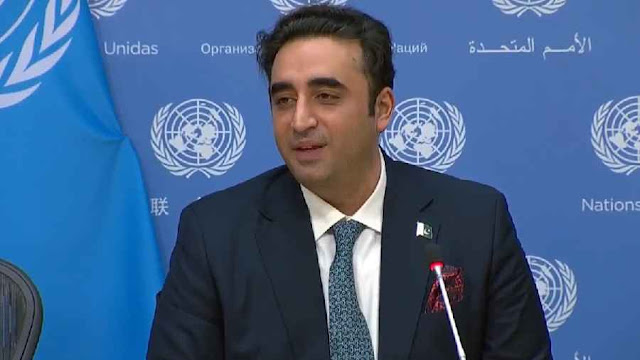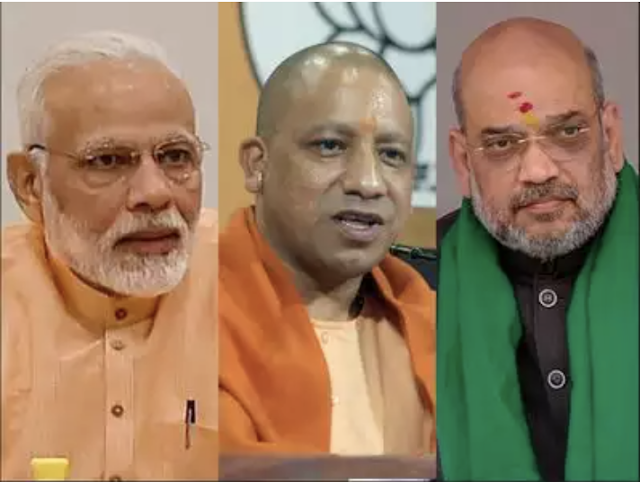Pakistan is often portrayed in the international media, particularly the western media, as a highly tradition-bound conservative society dominated by Taliban sympathizers. Fatima Bhutto, a granddaughter of former Pakistani Prime Minister Zulfikar Ali Bhutto, offers evidence to suggest otherwise.
 |
| Fatima Bhutto |
In a recent Op Ed published in The Guardian titled "Superheroes, jazz, queer art: how Pakistan’s transgressive pop culture went global", Fatima Bhutto offers recent examples of the Pakistani pop culture going global. In particular, she cites television series Ms. Marvel, feature film Joyland, Grammy winning Urdu singer Arooj Aftab, world-famous qawwali singers Nusrat Fateh Ali Khan and Abida Parveen, celebrated artists Shazia Sikandar and Salman Toor, and novelists like Mohammad Hanif, the author of "A Case of Exploding Mangoes".
Fatima talks about the history of the ongoing struggle between the conservatives and the progressives that dates back to the nation's independence in 1947. She also contrasts Pakistan with India: "Though Bollywood films from earlier decades addressed injustice, feudalism and political oppression, today the industry is little more than a mouthpiece for India’s quasi-fascist rightwing government, obsessed with spit-shining the image of its prime minister, Narendra Modi". Below are a some excepts of Fatima Bhutto's Op Ed:
1. "Even though the film (Joyland) was...subject to various bans in Pakistan, after being accused of pushing an LGBTQ+ agenda and misrepresenting Pakistani culture, it finally appeared in Pakistani cinemas in November, with Malala Yousafzai signing on as executive producer". Note: Joyland was the first Pakistani film to be screened at the prestigious Cannes Film Festival where "it won the Un Certain Regard prize, receiving a standing ovation nearly 10 minutes long".
2. "Ms Marvel follows Kamala Khan, whose parents, formerly of Karachi and now of New Jersey, are not caricatures of immigrant parents, but droll and charming, embarrassing in the way all parents are while their young daughter suffers the indignities of teenagers everywhere. The writing team knows only too well the codes and ciphers of Pakistani life and have seamlessly blended them into this Disney tale. Kamala has a brother who prays constantly (every Pakistani family has one resident fundamentalist), her father quotes poetry at the dinner table and Nakia, her hijab-wearing best friend, has her shoes stolen at the mosque – a timeless rite of passage for all mosque-going Muslims".
3. "In the past few months, the contemporary Pakistani artists Shahzia Sikander and Salman Toor have been glowingly profiled in the New Yorker; Toor’s Four Friends recently sold at a Sotheby’s auction for $1.2m (£0.99m). His paintings are celebrated for their depictions of queer intimacy, and reimaginings of classical masterpieces from Caravaggio to Édouard Manet. “My immediate reaction was that this artist could paint anything and make me believe in it,” wrote the New Yorker’s Calvin Tomkins".
4. "Pakistanis have always understood their heritage to be culturally rich and transgressive: from the romance of the Urdu language, spoken by poets and in royal courts, to qawwali singers as diverse as Nusrat Fateh Ali Khan and Abida Parveen, to television dramas and literature. Artists such as Iqbal Bano sang songs against dictators and shows on state television satirized military juntas with jokes so sophisticated that even army censors couldn’t catch them. In 1969, Pakistan state television aired Khuda Ki Basti, or God’s Own Land, a series set in a Karachi slum in the tumultuous days after independence, from a classic Urdu novel. To ensure that the drama was faithful to the novel, Pakistan state television convened a board of intellectuals to oversee the scripts, including Faiz Ahmed Faiz, one of the country’s most beloved poets".
5. “We’ve been having a really hard time in a post-9/11 world,” says the Brooklyn-based Arooj Aftab, the first Pakistani musician to win a Grammy, taking home the 2022 award for best global music performance. Aftab’s album Vulture Prince reimagines traditional ghazals, melancholic love poems born out of Arabic and Persian literary traditions. “There’s been a significant amount of Islamophobia and a lot of bad marketing towards Pakistan in general – associations with terrorism and pain and Afghanistan-adjacent confusion – while the narrative around a lot of other south Asian countries is like ‘Oh my God! Beauty! Exotic landscapes! Yoga!’ And the west loves that shit.”
Related Links:
Haq's Musings
South Asia Investor Review
Pakistani-American Gay Physicist Nergis Mavalvala
Emmy Winning British Pakistani Riz Ahmed
History of South Asians in America
HBO Comedy "Silicon Valley" Stars Pakistani-American
Pakistanis Make Up Largest Foreign-Born Muslim Group in Silicon Valley
Karachi to Hollywood: Triple Oscar Winning Pakistani-American
Burka Avenger: Pakistani Female Superhero
Pakistani-American Grammy Winning Urdu Singer Arooj Aftab
Pakistani-American Leads NYC Gay Parade
Pakistani-American Shahid Khan Richest South Asian in America
Ms. Marvel: Pakistani-American Girl Superhero
Pakistani-American Author-Journalist Raza Rumi in Silicon Valley
Minorities Are Majority in Silicon Valley
Pakistani-American Population Growth Second Fastest Among Asian-Americans
The Big Sick
Pakistani-American Diaspora Thriving in America
British Pakistani Singer Zayn Malik







